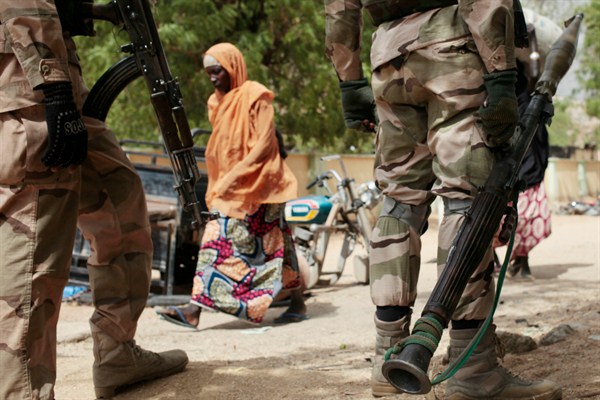The epicenter of the Boko Haram insurgency, Nigeria’s conflict-wracked northeast, did not erupt in celebration following the Dec. 23 announcement by President Muhammadu Buhari that his country had “technically” defeated the jihadi group. On the streets of Yola, the capital of Adamawa State, security personnel were out in force the next day, presumably to prevent Boko Haram from carrying out attacks during the holiday season. Residents of nearby internally displaced persons camps, meanwhile, expressed apprehension at the prospect of returning to their homes, due to concerns over the ongoing armed conflict between Boko Haram and the Nigerian military along the border between the northern states of Adamawa and Borno.
Despite reportedly being driven from nearly all of the territory it controlled at the beginning of 2015, Boko Haram continues to pose a serious security threat to the populations of the four countries around Lake Chad: Nigeria, Niger, Cameroon and Chad. International organizations have difficulty accessing 26 local government areas in northern Adamawa, southern Borno and eastern Yobe states—more than 30 percent of rural northeastern Nigeria—due to the persistent presence of Boko Haram fighters. Suspected Boko Haram elements have also recently conducted a string of deadly attacks in Cameroon, Chad and Niger. Far from teetering on the brink of collapse, Boko Haram’s rebellion could last for years, particularly if Abuja and its partners fail to secure the countryside around Lake Chad.
Its use of suicide bombers and much-publicized declaration of allegiance to the self-proclaimed Islamic State notwithstanding, today’s Boko Haram increasingly resembles a criminal enterprise rather than a committed jihadi movement. Individuals who lived in Boko Haram’s short-lived “state” claim that many insurgents possess, at best, only a rudimentary understanding of their group’s stated ideology. Boko Haram’s attacks on settlements generally lead to acts of indiscriminate looting and murder reminiscent of those perpetrated by the local Zaraguina, or highwaymen.

